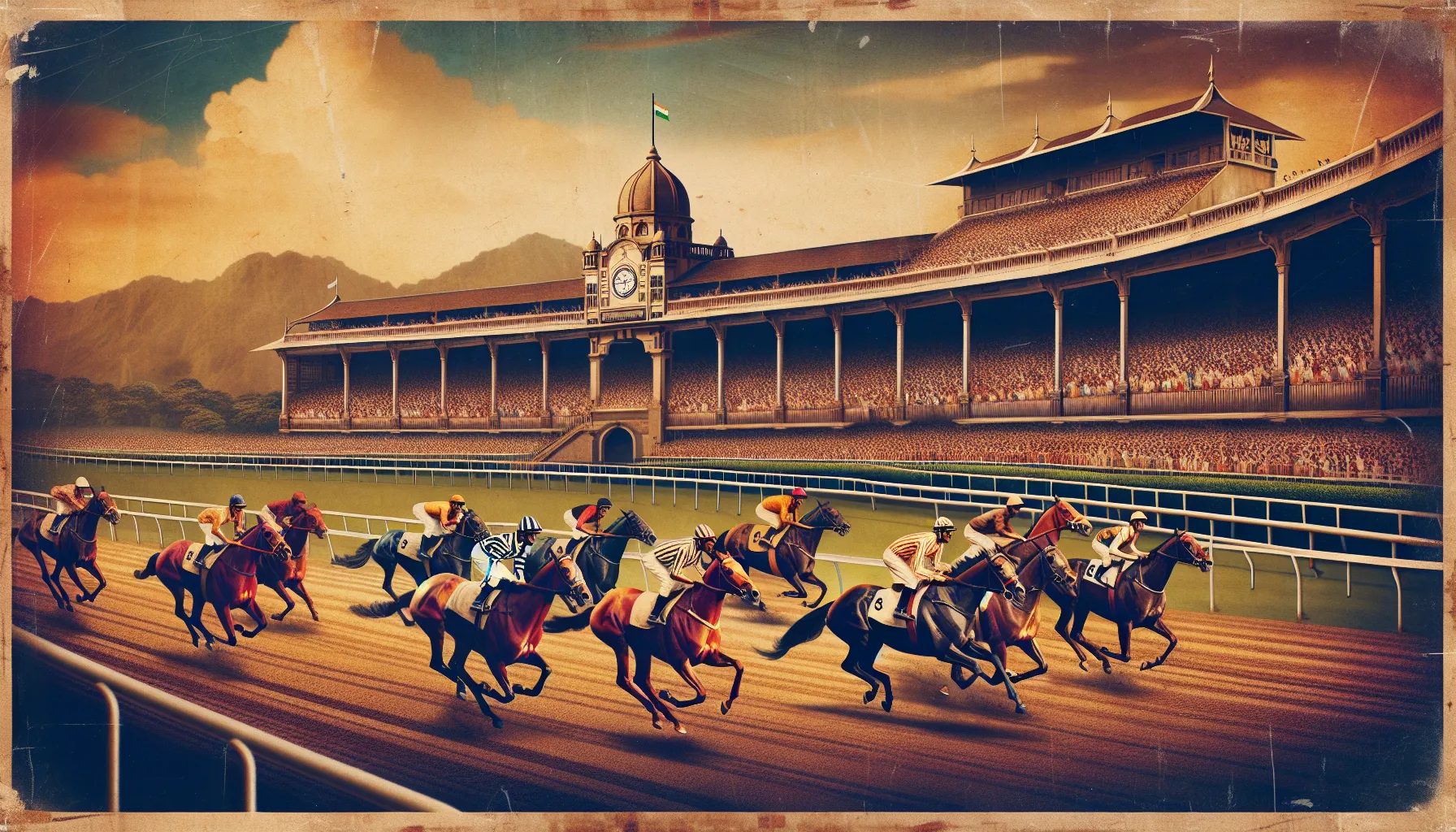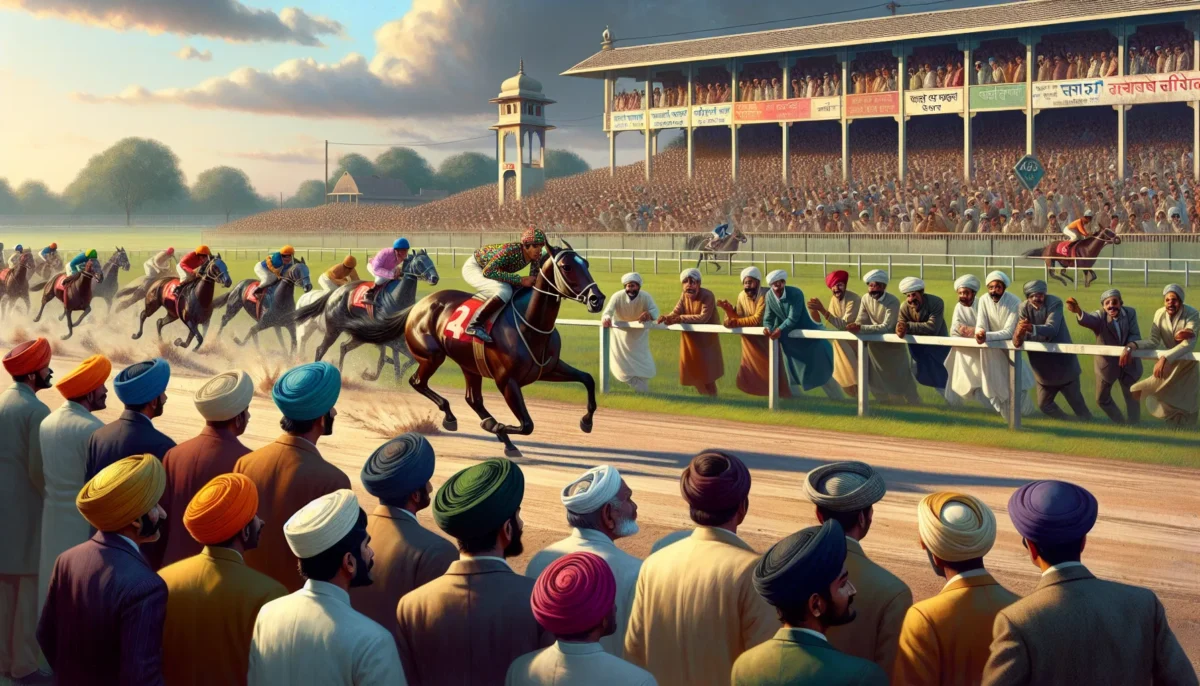When it comes to horse betting in India, the legal landscape can feel like a maze. You might wonder if placing a wager on your favorite horse is allowed or if it falls into the gray area of gambling laws. The confusion stems from India’s complex regulations, where some forms of betting are legal, while others aren’t.
Understanding the legality of horse betting means diving into how Indian laws view games of skill versus games of chance. Horse racing, often considered a game of skill, holds a unique position in this debate. But does that make betting on it completely legal? Knowing the rules can help you navigate this thrilling yet uncertain world with confidence.
Understanding Horse Betting in India
Horse betting in India operates under a unique legal framework. Classified as a game of skill, it holds a different status compared to pure games of chance, which are largely prohibited. The Supreme Court of India, in its 1996 ruling, validated horse racing as a skill-based activity, distinguishing it from gambling restricted by the Public Gambling Act of 1867.
Regulation of horse betting depends on state governments, as gambling laws fall under their jurisdiction. States like Maharashtra, Karnataka, and Tamil Nadu allow regulated betting through licensed racecourses. These facilities comply with legal norms to ensure fair practices. Betting outside such authorized venues may fall under illegal activities.
Horse betting takes two primary forms in India, on-track betting and off-track betting. On-track betting occurs within licensed racecourses and is overseen by racing clubs, ensuring compliance with regulations. Off-track betting, offered through authorized bookmakers, sometimes includes online platforms within legal limits. Confirming the licensing of such platforms is essential to avoid illegal transactions.
The rise of digital platforms has expanded accessibility to horse betting. Despite this, the legality of online betting remains a gray area. Several platforms operate under the licenses of states where betting is legal, but challenges arise due to the absence of centralized regulations on digital gambling.
Understanding these distinctions helps you make informed decisions while engaging in horse betting within India’s legal boundaries.
Legal Status of Horse Betting in India

Horse betting in India occupies a unique legal space due to its recognition as a game of skill. The Supreme Court’s 1996 ruling remains pivotal in classifying horse racing separately from gambling activities. However, detailed legalities depend on state-specific regulations and existing legislation.
Overview of Legal Framework
India’s gambling laws operate under a dual governance structure, with both central and state governments sharing responsibilities. The Public Gambling Act of 1867 serves as the foundation for gambling regulation. This act, largely prohibitive in nature, excludes horse racing betting because it qualifies as a game of skill rather than chance.
State governments play a primary role in regulating horse betting through independently crafted laws. Regulated betting markets function in specific states like Maharashtra, Karnataka, and Tamil Nadu, where racecourses operate under strict licensing and monitoring systems. Each state law varies significantly, which affects the accessibility and structure of horse betting.
Key Acts Governing Horse Betting
Two main legislative acts govern horse betting across India:
- Public Gambling Act of 1867: This central law criminalizes most gambling activities but excludes skill-based ventures such as horse racing betting from its ambit. Its primary focus is on unauthorized gambling houses and maintaining public order.
- State-Specific Gambling Laws: Regulations differ by state. For instance, the Bombay Prevention of Gambling Act, 1887, governs betting practices in Maharashtra, while Tamil Nadu enforces its own law through the Tamil Nadu Betting Tax Act, 1935. These laws authorize racecourses to facilitate betting under strict parameters, including taxation and licensing.
Some states also impose specific taxation rules on betting winnings. Thoroughly understanding these laws can help you better navigate horse betting within legal boundaries.
States Where Horse Betting is Legal

Several Indian states permit horse betting under regulated conditions, as gambling laws are managed at the state level. These states have established clear guidelines to distinguish horse racing as a skill-based activity, ensuring compliance with legal frameworks.
Prominent States Allowing Horse Betting
- Maharashtra: Horse betting operates legally under the Bombay Prevention of Gambling Act, 1887. The Royal Western India Turf Club organizes licensed races and on-track betting at venues like the Mahalaxmi Racecourse.
- Karnataka: The Bangalore Turf Club oversees betting, adhering to state-specific laws. On-track wagers at its licensed racecourse are permitted, with strict monitoring in place.
- Tamil Nadu: The Tamil Nadu Betting Tax Act, 1935, facilitates horse betting primarily at Guindy Racecourse. Licensed operations ensure compliance with tax and regulatory norms.
- West Bengal: Betting is allowed at Kolkata’s Royal Calcutta Turf Club. Licensed racecourses manage the activity, ensuring adherence to legal requirements.
- Punjab: Activities are supervised by the Punjab Horse Race Betting Tax Act, involving government-approved racecourses like the ones in Patiala.
Differences in State Regulations
State governments set unique conditions for horse betting to ensure legal compliance and taxation. Maharashtra and Karnataka impose licensing systems, requiring operators to obtain permits. Tamil Nadu enforces a separate betting tax structure, further distinguishing its regulatory practices. While certain states restrict online horse betting, others allow off-track wagering through authorized bookmakers. Failing to follow these specific requirements may result in legal penalties.
Online Horse Betting and Its Legality

Online horse betting in India presents a complex legal landscape. Although horse racing is recognized as a skill-based activity, the absence of clear central regulation for online platforms creates legal ambiguity.
Current Legal Challenges
The lack of federal legislation directly addressing online horse betting complicates its legality. While traditional horse betting operates under state-specific laws, online platforms remain largely unregulated. States like Maharashtra and Karnataka enforce strict regulations for physical betting through licensed channels, but these don’t consistently extend to digital platforms. Additionally, the Information Technology Act of 2000 doesn’t explicitly cover online gambling, leaving further gaps in enforcement.
Several offshore platforms allow Indian players to participate in online horse betting, exploiting these legal loopholes. However, transacting with such platforms could violate the Foreign Exchange Management Act (FEMA) if funds are transferred outside India without proper authorization. Without centralized rules, the potential for fraud and lack of consumer protection also remain significant concerns for online bettors.
The Role of Technology in Horse Betting
Technology has transformed how you engage in horse betting. Online platforms provide real-time updates, live-streamed races, and digital wagering options. Mobile apps and websites have made participation more accessible, even in areas without licensed physical racecourses. These platforms cater to a growing digital audience, integrating features like secure payment gateways and AI-driven insights for improved user experience.
Though convenient, using technology for horse betting raises regulatory challenges. Encryption and secure transactions make online platforms harder to monitor. State authorities currently lack sufficient tools to oversee or control such digital activities, further widening the regulatory gap. If reforms are introduced, technology could be a crucial tool in ensuring legal compliance and protecting user interests.
Ethical Concerns and Public Opinion
Ethical concerns regarding horse betting in India revolve around potential exploitation, gambling addiction, and societal impact. Critics argue that betting could lead to financial hardships for vulnerable individuals and encourage illegal practices if unregulated. Additionally, concerns about animal welfare in horse racing further fuel ethical debates, with advocates stressing the need for stringent safeguards to ensure the humane treatment of racing horses.
Public opinion on horse betting is divided. Some support it as a legitimate activity tied to a skill-based sport, citing economic benefits from taxes, employment in racecourses, and tourism. Others oppose it due to moral and ethical reasons, associating betting with gambling’s negative connotations. Differences in state-level regulatory approaches contribute to varying perceptions of horse betting’s acceptability across India.
Conclusion
Navigating the legal landscape of horse betting in India requires a clear understanding of both central and state-specific laws. While horse racing is recognized as a game of skill and betting on it is legal in certain states, the lack of uniform regulations creates challenges, especially for online platforms.
If you’re considering horse betting, ensure you engage with licensed operators and stay informed about the laws in your state. Responsible betting practices and awareness of potential risks can help you enjoy this activity within the boundaries of legality and ethics.
Frequently Asked Questions
Is horse betting legal in India?
Horse betting is considered legal in India as it is recognized as a game of skill rather than chance. However, its regulation varies across states, with some allowing it through licensed racecourses while others impose restrictions.
What is the difference between on-track and off-track betting?
On-track betting takes place within licensed racecourses, while off-track betting is conducted through authorized bookmakers or online platforms. Both are regulated by specific state laws where they are permitted.
Which states in India allow horse betting?
States like Maharashtra, Karnataka, Tamil Nadu, West Bengal, and Punjab permit horse betting under specific regulations through licensed racecourses or approved systems.
Are online horse betting platforms legal in India?
The legality of online horse betting remains unclear due to a lack of centralized regulations. Some state laws permit it under authorized providers, but unregulated platforms could pose legal risks.
What laws govern horse betting in India?
The Public Gambling Act of 1867 excludes horse betting as it is a skill-based activity. State-specific laws, like the Bombay Prevention of Gambling Act and Tamil Nadu Betting Tax Act, govern betting practices in their respective regions.
What are the risks of using offshore betting platforms?
Offshore betting platforms exploit legal gaps and may lead to violations of the Foreign Exchange Management Act (FEMA) if funds are transferred outside India without proper authorization.
How do state governments regulate horse betting?
State governments regulate horse betting through licensing, monitoring systems, and imposing taxes, ensuring fair practices within authorized platforms and racecourses.
Why is horse betting classified as a game of skill?
The Supreme Court of India declared horse racing a game of skill in 1996, as it involves analyzing factors like horse performance, jockey expertise, and race conditions, distinguishing it from games of chance.
What challenges does online horse betting face in India?
Online horse betting faces legal and regulatory challenges due to the absence of a unified regulatory framework, making it difficult for state authorities to monitor and control digital platforms.
What are the ethical issues surrounding horse betting?
Ethical concerns include gambling addiction, financial hardships for vulnerable individuals, and questions about animal welfare in horse racing. Unregulated betting can exacerbate these issues.
